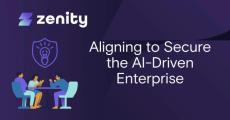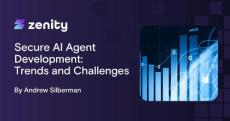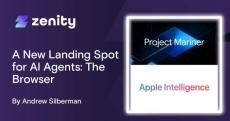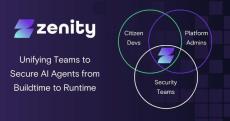- January 2025 (2)
- December 2024 (5)
- November 2024 (2)
- October 2024 (2)
- September 2024 (4)
- July 2024 (3)
- June 2024 (2)
- May 2024 (6)
- April 2024 (2)
- March 2024 (2)
- February 2024 (2)
- January 2024 (3)
- December 2023 (2)
- November 2023 (4)
- October 2023 (1)
- September 2023 (5)
- July 2023 (2)
- June 2023 (3)
- May 2023 (7)
- April 2023 (4)
- March 2023 (3)
- February 2023 (3)
- January 2023 (1)
- December 2022 (1)
- November 2022 (2)
- September 2022 (2)
- August 2022 (1)
- July 2022 (2)
- June 2022 (1)
- May 2022 (3)
- April 2022 (2)
- February 2022 (1)
- January 2022 (3)
- December 2021 (2)
- November 2021 (3)
- October 2021 (3)
Continuously protecting all low-code/no-code applications and components! Design and implement governance policies, identify security risks, detect emerging threats and drive automatic mitigation and response.
Low-code/no-code development and automation platforms are the wave of the future. The largest companies in the world are already adopting low-code/no-code development for their core business units. But with all their benefits, low-code/no-code development brings with it a host of governance challenges and risks that are unaddressed by existing InfoSec and AppSec solutions.
Zenity, the first and only governance and security platform for low-code/no-code applications, creates a win-win environment where IT and information security can give business and pro developers the freedom and independence they want in order to continue pushing their business forward while retaining full visibility and control.
Our Platform:
- Discover: Identify shadow-IT business applications across your low-code/no-code fleet and track sensitive and business data movement.
- Mitigate: Identify insecure, vulnerable and risky configurations. Drive mitigation and remediation immediately.
- Govern: Design policies and implement automatic enforcement. Eliminate risks without disrupting business.
- Protect: Detect suspicious and malicious activity, such as supply-chain attacks, malware obfuscation and data leakage.
Governance and Security for Low-Code/No-Code Applications.












